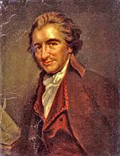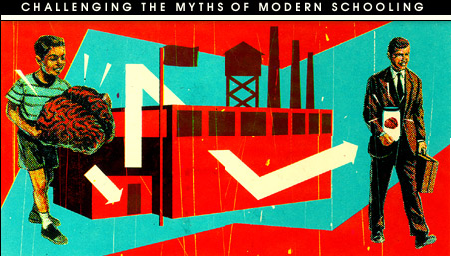
 |
The Age of American Unreason
|
Please go to the new Coffee Coaster site implemented more gracefully in Wordpress. This page: http://brianrwright.com/CoffeeCoasterBlog/?p=4382 |
 2008, Random House , 318 pages
2008, Random House , 318 pages
"I raise no objections to television's junk. The best things on television are its junk, and no one and nothing is seriously threatened by it. Besides, we do not measure a culture by its output of undisguised trivialities but by what it claims as significant. Therein is our problem, for television is at its most trivial and, therefore, most dangerous when its aspirations are high, when it presents itself as a carrier of important cultural conversations."
— Neil Postman, Amusing Ourselves to Death, 1985
I've run into Postman (the author quoted above) before, having reviewed on these pages one of my favorite books of all time, Building a Bridge to the 18th Century. Indeed, the condition Ms. Jacoby describes in The Age of American Unreason cries out for the prescriptions Dr. Postman suggests in his Bridge.
But I'm getting ahead of myself. Susan Jacoby is a well known benevolent spirit in the secular humanism culture, and a regular contributor to Free Inquiry magazine and other publications. She also wrote Freethinkers: A history of American secularism and Wild Justice, a Pulitzer Prize finalist, as well as several other books in the field of politics and epistemology—the study of how we know things. She grew up in Okemos, Michigan, an upper middle class community near the state capital; she's had (and continues to have) a distinguished career as a journalist and a writer. In March, at Schuler's bookstore in Okemos, she held a book signing, which I had the pleasure of attending along with 100 or so of her fans and former neighbors.
She spoke that evening mainly from the introduction in Unreason; I was astounded by several facts she mentioned, all of which were reinforced by my reading of the book. 1) Based on a 2002 survey, fewer than half of adult Americans had read a work of fiction or poetry in the previous year, fully 43% had not read a single book of any kind. 2) Nearly 2/3 of Americans want biblical creation to be taught with evolution in the government schools and 42% believe all living beings have existed in their current form since the beginning of time. 3) More than 1/2 believe in ghosts, 1/3 believe in astrology, 3/4 believe in angels, and 4/5 believe in miracles.
I had never thought the numbers were so staggeringly against reason, much less common sense. And it changes everything for me, from how I address my readers to my overall expectations of liberty in the world we actually live in. Ms. Jacoby gives an example of the destructive, antihuman effects of such widespread unreason. I'm going to quote at length, because it represents exactly how the current literal-criminal Bush-Cheney administration was enabled to cause so much damage:
Just before the 2004 presidential election, the journalist Ron Suskind reported a chilling conversation with a senior Bush aide, who told Suskind that members of the press were part of what the Bush administration considers "the reality-based community" —those who "believe that solutions emerge from judicious study of discernible reality." But, the aide emphasized, "That's not the way the world really works anymore. We're an empire now, and when we act, we create our own reality. And while you're studying that reality... we'll act again, creating other new realities, which you can study, too.... We're history's actors... and you, all of you, will be left to just study what we do." The explicit distinction between those who are fit only to study and those who are history's actors not only expresses contempt for intellectuals but denigrates anyone who requires evidence, rather than power and emotion, as justification for public policy.—Page 10
Can anyone
else see the Third Reich's Triumph of the Will, or hear Nazi propaganda minister Joseph Goebbels' disdainful comments on the "quibbling hairsplitting intellect" in the above paragraph? Well, I think we see a full-blown proof that actions have consequences, or rather lack of rationality has consequences. As for the causal chain leading to such manifest hostility toward humanity (which, after all, cannot live without the mind), Ms. Jacoby posits two key agencies: a) the decline of print culture—active conceptual reading and writing—and the rise of video culture—passive, perceptual mental traffic in images—, and b) the rise of religious fundamentalism.
Ms. Jacoby spends a considerable time outlining the history of the latter. She shows more generally how theistic irrationality emerged in the South following the War for Independence, and became cemented in place as a widespread affliction after the War Between the States. She also gives us a wide array of the thinking of leading secular humanists in the North—including Jefferson, Paine, Emerson, Thoreau, and many others—who during the 19th century fought a continuing battle for reason and science. The conflict she claims was typically in the context of Darwinian evolution; the South was not so inclined as the North to give up both slavery of the mind (to phantasms of the Bible) and slavery of others. [Even though arguments can be made that political elites on both sides relied heavily on mass ignorance, popular ignorance in the South rested more along lines of dogmatic religious faith.]
So a large part of the book is a highly valuable, readable, and thoroughly fascinating intellectual (and anti-intellectual) history lesson. The 19th century history lesson proceeds into the 20th. In the 1960s, Jacoby's focus turns from the Bible Belt to the emerging dominance of video media over the consciousnesses of so many—the "culture of distraction." In our time, we have the "benefits" of both: antireason fundamentalism and antireason media; it's a difficult combination to overcome. And she admits it may be too late to rescue the conceptual mind from oblivion: "It is possible nothing will help. The nation's memory and attention span may have already sustained so much damage that they cannot be revived by the best efforts of America's best minds."
Yet she concludes with a more positive:
"If there is to be an alternative to the culture of distraction, it can only be created one family at a time, by parents and citizens determined to preserve a saving remnant of those who prize memory and true learning above all else. Adult self-control, not digital parent controls, is the chief requirement for the transmission of individual and historical memory." — page 316
In other words, get out those books. Insist on nothing less than a literally conceptual, rational world.
###
This is a significant work by a person I admire professionally and personally. But it's necessary to qualify my praise of her book with a couple of broad criticisms: 1) Ms. Jacoby makes several assertions and assumptions as to the validity—both morally and intellectually—of government schools. This position is common among the "liberal" branch of secular humanists, and it's been my experience they hold it with a ferocity that filters away any libertarian analysis [from history and from common sense (such as the educational freedom ideas of John Taylor Gatto)] that may challenge their faith that one can learn at the point of a gun. 2) The author takes a petty swipe at the rational individualism of Ayn Rand, referring to Rand's notions as "tedious mid-20th-century social Darwinism," i.e. merely another form of dogmatism. If you're in a battle against faith, as we are, it does no good to foul the deep waters of reason plumbed by Rand and [some of] her intellectual heirs. Jacoby, by condemning without consideration, has taken a perverse cheap shot against her own team. And it demonstrates to me that she is unwilling or unable to let go of probably the biggest impediment to the success of reason: the frozen abstraction that government coercion is consistent with the ideals of secular humanism.
###
###

Free School
Movement

 Click banner to order, click here for book review
Click banner to order, click here for book review
 Click banner to order, click here for book review
Click banner to order, click here for book review
 |
 |
|||
| New Pilgrim Chronicles Forum |